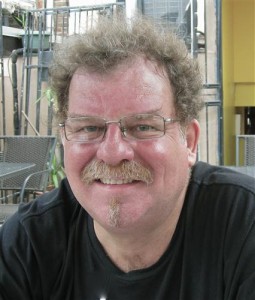By Julian Brash
I first met Neil Smith in fall 1999, while studying urban planning at Columbia University. I had read his seminal work on gentrification, The New Urban Frontier, earlier that year, and its probably not too much of an exaggeration to say that doing so changed my life. Gentrification had shaped my life in profound ways, and Neil’s book provided an insight into the process—and its politics—that altered the way I understood not just the city around me but my own place in it.
I was writing a master’s dissertation on gentrification in Harlem, updating work that Neil had done with Richard Schaffer a decade earlier, and I asked Neil to sit on my committee. Despite not knowing me from Adam, or having any obligation did so, Neil agreed. And what’s more, he suggested we meet for breakfast to talk about my project.
I remember vividly how nervous I was standing in front of Aggie’s, a now-gone breakfast joint on Houston Street—I was about to have breakfast with Neil Smith. And I also remember vividly how quickly Neil put me at ease. The good humor, conviviality, and intelligence that so many of us loved Neil for was evident immediately. During our meal together, I basically decided this was the person I wanted to get a PhD with. And when Neil told me about the Anthropology program at the CUNY Graduate Center, my mind was made up: despite never haven taken a single anthropology course in my life, that was where I wanted to be.
My six years studying under Neil at the GC were everything I had hoped they would be. Neil was a great advisor—supportive, warm, insightful, and encouraging—and was immensely supportive of my development as a graduate student, and later as a junior academic: he helped organize the first two conference sessions I participated in, he was key in getting my first article published, he provided me a place to write my dissertation, he helped me get both of the academic positions I have held, and he helped me secure a publisher for my book. This is to say nothing of his impact on my scholarship: what else is my work on the Bloomberg administration’s development of “the luxury city” but an elaboration of Neil’s concept of “the generalization of gentrification,” the notion that what began as the embourgeoisement of certain urban districts has evolved into a far more profound and extensive class transformation of the city?
Much has been and will be written about the Neil’s brilliant and original insights into the way capitalism and power structure the production of nature, cities, and space, and his unswerving political commitments. But what I want to highlight is the decency, generosity, good cheer, and openness that Neil brought to the Graduate Center. Academia can be a nasty and isolating place. But having Neil as an advisor, mentor, and friend made the GC a place where I could thrive, and even after I left the GC and saw him much less frequently, meant that I never felt alone or without support as a junior academic. That sense—which I know is shared by many—that Neil had my back is perhaps what I will miss most about this great scholar.


Pingback: Neil Smith, 1958-2012 | Warszawa w budowie 4. Miasto na sprzedaż